AWM41 1029 - [Nurses Narratives] Sister I Ritchie
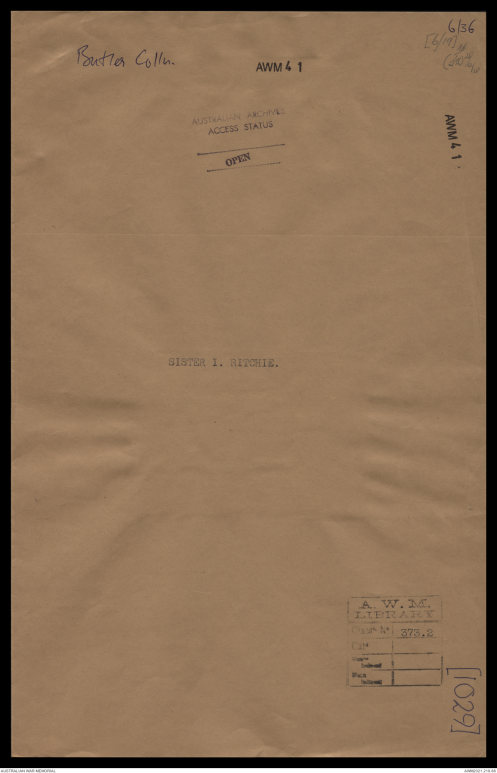
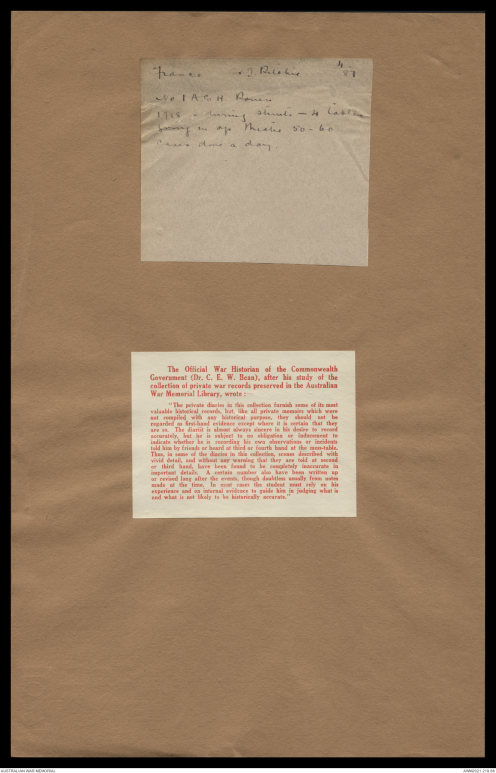
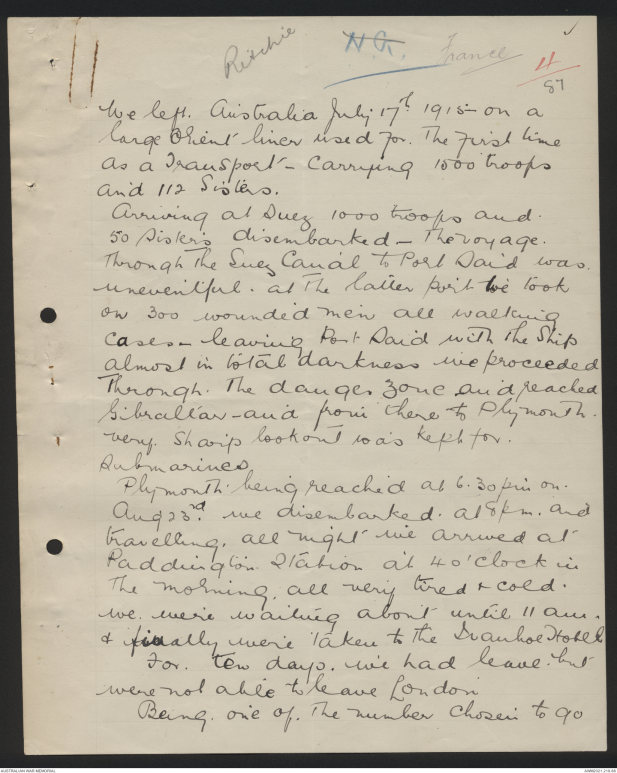
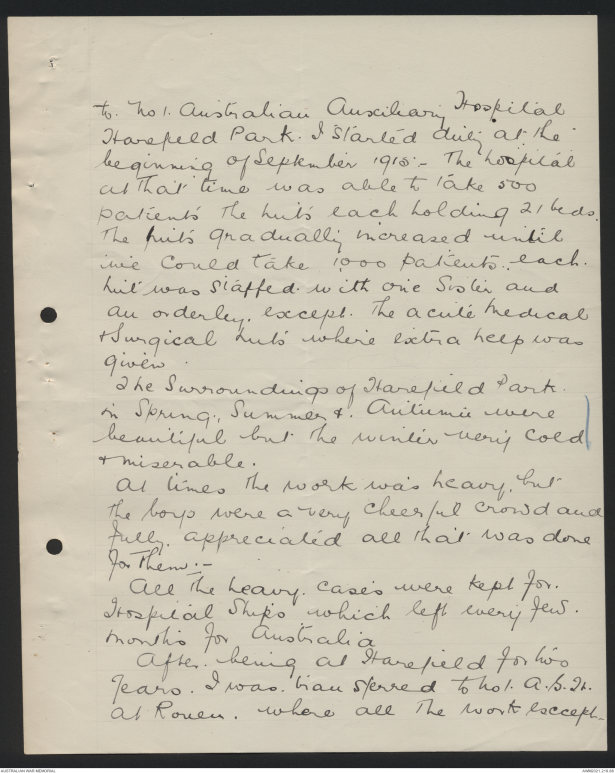
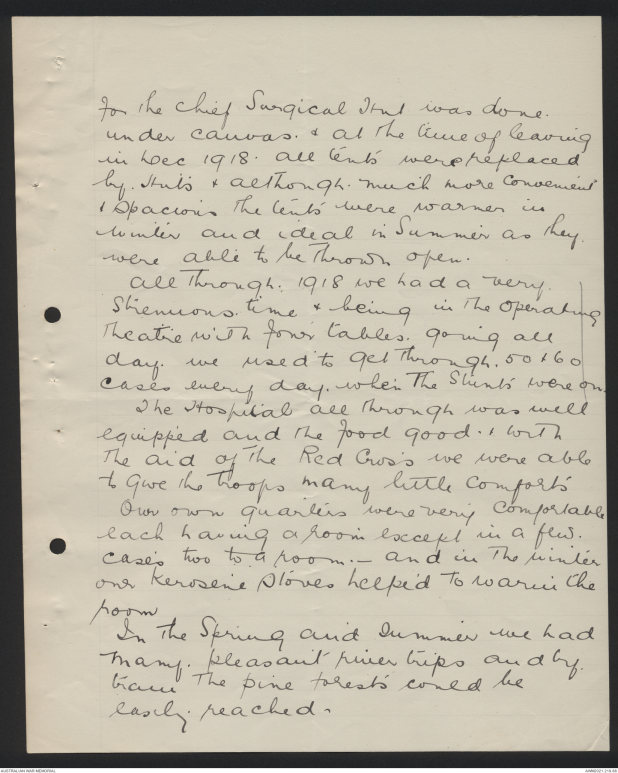
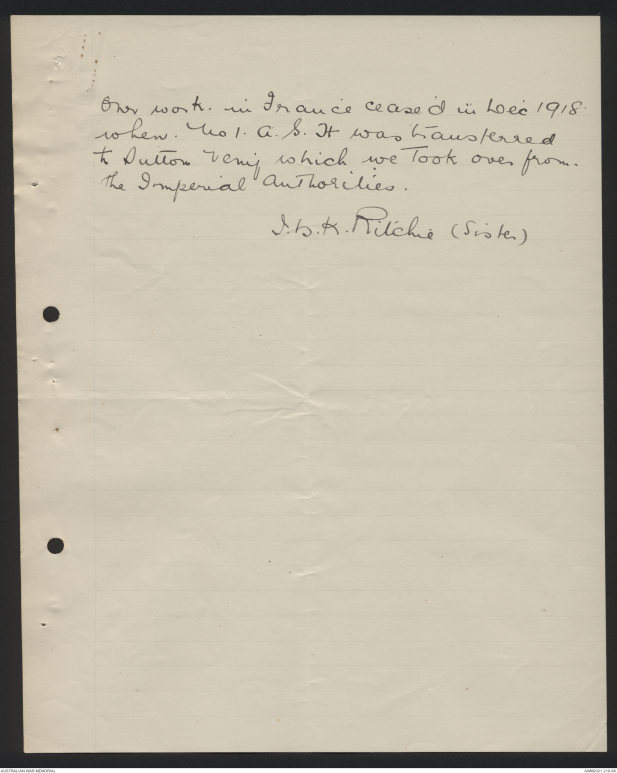
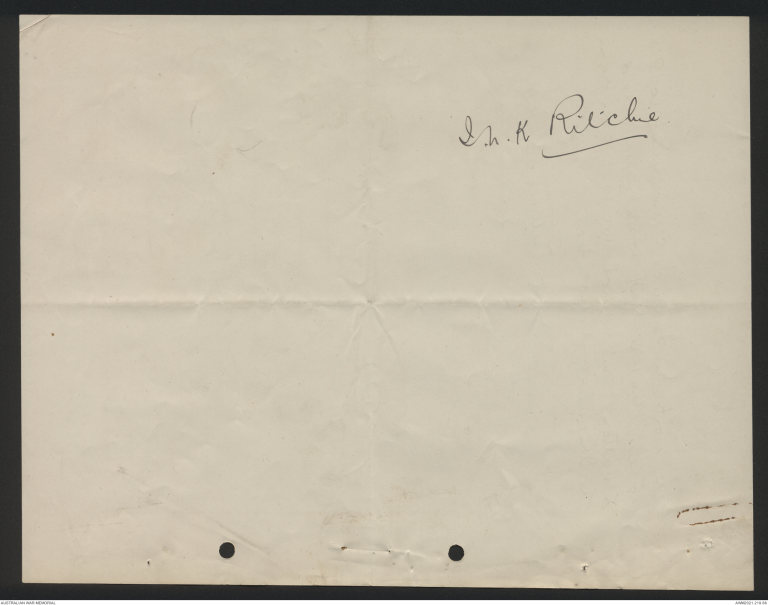
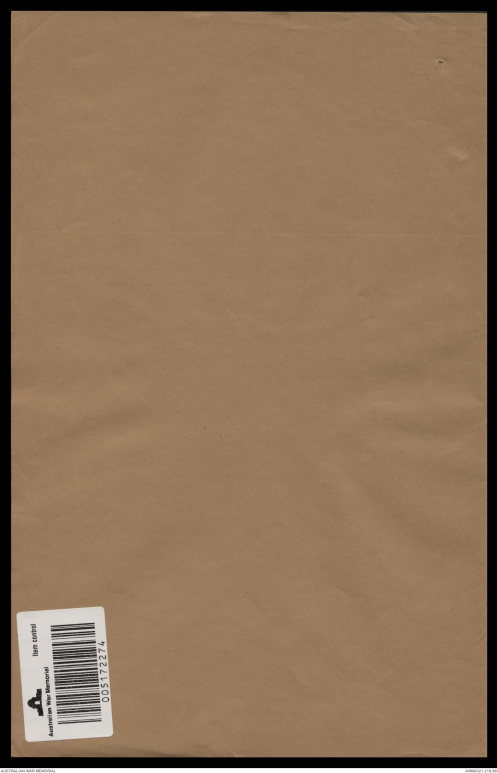
Butler Collin
6/36
[6/19]
[[?]]
A.W.M.41
AUSTRALIAN ARCHIVE
ACCESS STATED
OPEN
[AWM 4 1 *]
[*AWM
LIBRARY
Case NO. 373.2
[[?]]
[[?]]
[*1029*]
France I. Ritchie
4/87
At 1 A G H Rouen
1918 - during stunts - 4 Cathe
going in op theatre 50-60
cases done a day.
The Official War Historian of the Commonwealth
Government (Dr. C. E. W. Bean), after his study of the
collection of private war records preserved in the Australian
War Memorial Library, wrote:-
"The private diaries in this collection furnish some of its most
valuable historical records, but, like all private memoirs which were
not compiled with any historical purpose, they should not be
regarded as first-hand evidence except where it is certain that they
are so. The diarist is almost always sincere in his desire to record
accurately, but he is subject to no obligation or inducement to
indicate whether he is recording his own observations or incidents
told him by friends or heard at third or fourth hand at the mess-table.
Thus, in some of the diaries in this collection, scenes described with
vivid detail, and without any warning that they are told at second
or third hand, have been found to be completely inaccurate in
important details. A certain number also have been written up
or revised long after the events, though doubtless usually from notes
made at the time. In most cases the student must rely on his
experience and on internal evidence to guide him in judging what is
and what is not likely to be historically accurate".
Ritchie
N.G.
France √
4/87
We left Australia July 17th 1915 on a
large Orient liner used for the first time
as a transport- carrying 1000 troops
and 112 Sisters.
Arriving at Suez 1000 troops and
50 Sisters disembarked - The voyage.
through the Suez Canal to Port Said was
uneventful. At the latter port we took
on 300 wounded men all walking
cases leaving Port Said with the ship
almost in total darkness we proceeded
through the danger zone and reached
Gibraltar - and from there to Plymouth.
very sharp lookout was kept for
submarines.
Plymouth being reached at 6.30 pm on
Aug 23rd. we disembarked at 8 pm. and
travelling, all night we arrived at
Paddington Station al 4 o'clock in
the morning, all very tired & cold.
We were waiting about until 11 am
& finally were taken to the Ivanhoe Hotel.
For ten days, we had leave but
were not able to leave London
being one of the number chosen to go
to No 1 Australian Auxiliary Hospital
Harefield Park. I started duty at the
beginning of September 1915 - The hospital
at that time was able to take 500
patients the huts each holding 21 beds
The huts gradually increased until
we could take 1000 patients each
hut was staffed with one Sister and
an orderly except. The acute Medical
& Surgical huts where extra help was
given.
The surroundings of Harefield Park
in Spring, Summer & Autumn were
beautiful but the winter very cold
& miserable.
As times the work was heavy, but
the boys were a very cheerful crowd and
fully appreciated all that was done
for them:-
All the heavy cases were kept for.
Hospital Ship's which left every few
months For Australia
After being at Harefield For two
years, I was transferred to No1. A.G.H
at Rouen. where all the work except
for the Chief Surgical tent was done.
under canvas. & at the time of leaving
in Dec 1918. all tents were replaced
by huts & although much more convenient
& spacious the tents were warmer in
winter and ideal in summer as they
were able to be thrown open.
All through 1918 we had a very
strenuous time & being in the Operating
Theatre with Four tables. going all
day. we used to get through. 50 & 60
cases every day. when the stunts were on.
The Hospital all though was well
equipped and the food good, & with
the aid of the Red Cross we were able
to give the troops many little comforts
Our own quarters were very comfortable
each having a room except in a few.
cases two to a room.- and in the Winter
our kerosene stoves helped To warm the
room.
In the Spring and Summer we had
many. pleasant river trips and by
train pine forests could be
easily reached.
Our work in France ceased in Dec 1918
when No 1. A. G H. was transferred
to Sutton Veny which we took over from.
the Imperial Authorities
I.N.K Ritchie (Sister)
I.N. K. Ritchie
Item Control
Australian War Memorial
005172274
 Maralyn K
Maralyn KThis transcription item is now locked to you for editing. To release the lock either Save your changes or Cancel.
This lock will be automatically released after 60 minutes of inactivity.